It's A Mad World: An interview with Moses Sumney
Music — 10.03.17
Interview: Emilia Slupecka
Photographer: Rosaline Shahnavaz
Stylist: Camilla Sverdrup-Thygeson
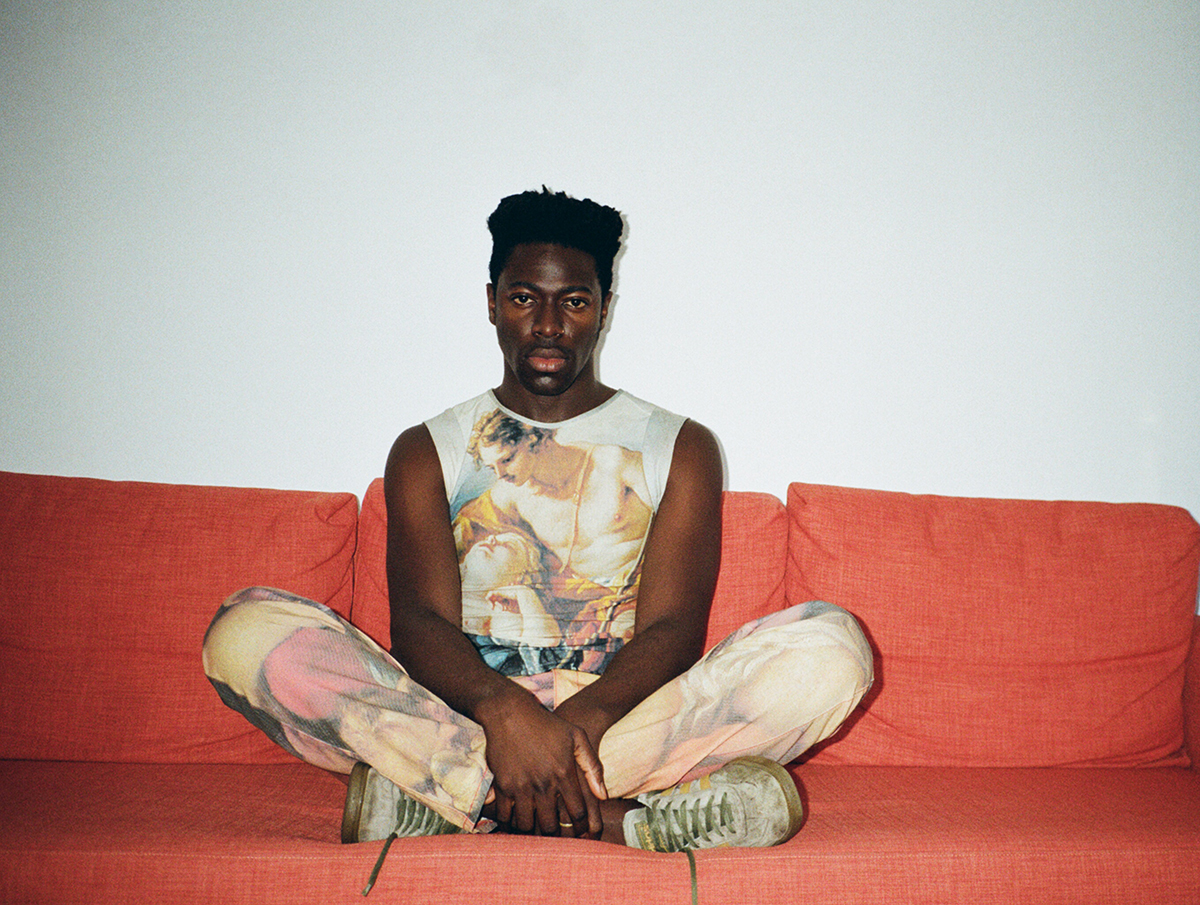
Top and Trousers Vivienne Westwood Archive, Shoes Adidas
Moses Sumney is not your ordinary musician. Raised by Ghanaian-born parents – who moved him and the family back to Ghana from his hometown of San Bernardino, California, when he was 10 – Sumney created an insular world for himself and his talents.
For many years he was too shy to share his talent. At the ripe age of 20, he taught himself how to play the guitar while studying at UCLA and began performing. Fast forward to only a few years later, and Moses Sumney has already played alongside musical luminaries such as Solange, James Blake, and Beck.
Now 25, Sumney lives in LA and has constructed his very own brand of electro-folk-soul using various textures of his falsetto, combined with a guitar, some effects pedals, and not much else. His music is gentle and bare, but his voice pitches and lulls with clear precision, giving us a glimpse into the world of this tender and elusive artist. Many of his songs glimmer reflections of darkness and light with vibrant lyrics harmoniously ascending over every production peak, all completed with impeccable restraint and meaning.
Since releasing a self-recorded EP Mid-City Island in 2014, he quickly established himself as someone to keep a close eye on. In 2016, Moses dropped Lamentation, the EP that offers another glimpse into his world. Now, Sumney is working on the full-length album, Aromanticism, due to release in 2017.
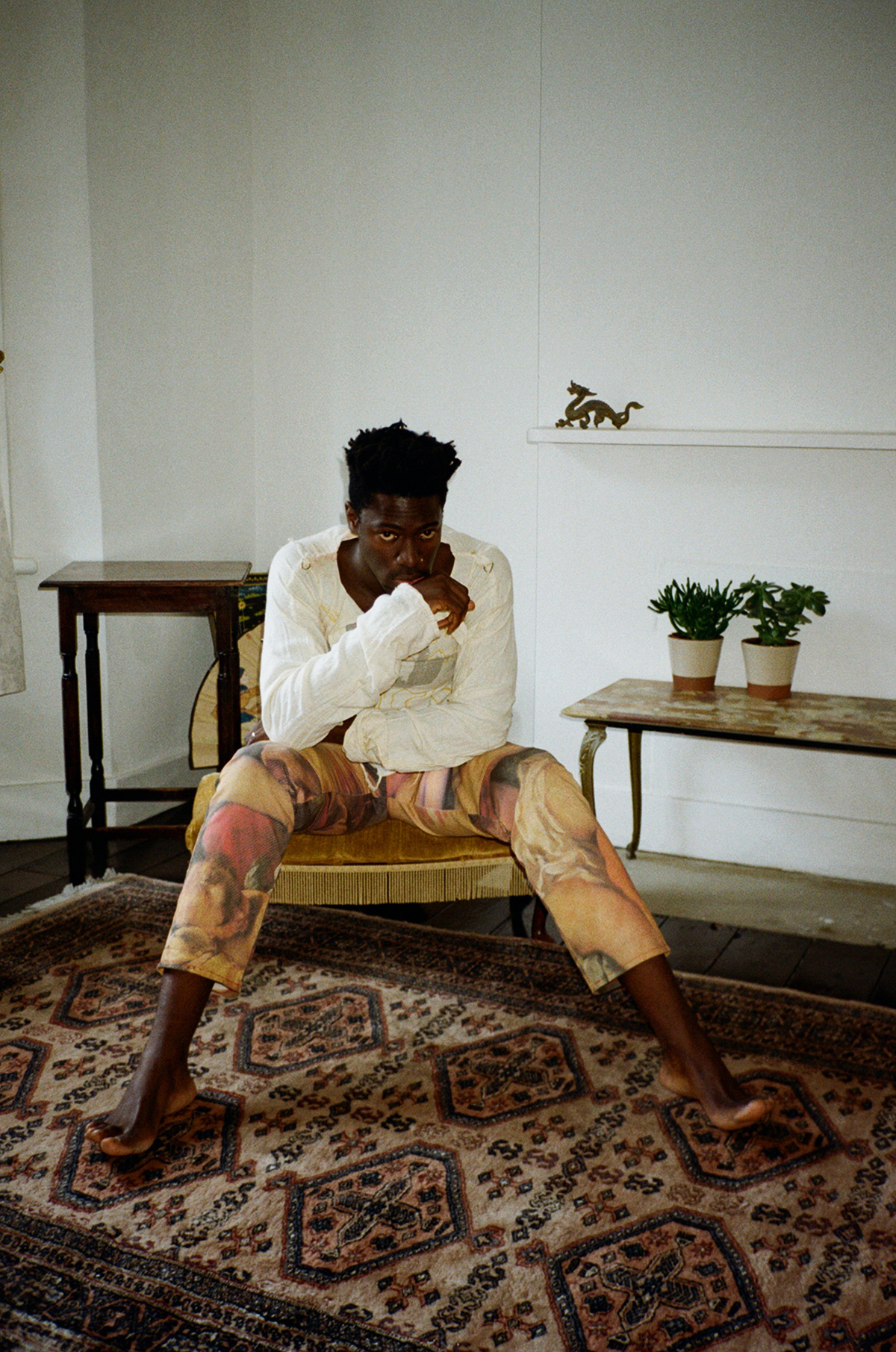
Full Look Vivienne Westwood Archive
How did your music journey begin?
I think it started as a kid. My earliest memory of music is listening to country music at home in Southern California, which is not the most common type of music here. So, there’s a lot of that. Then, I just remember being into the storytelling and really being into the guitar.
Did you play any instruments growing up?
No, I wasn’t allowed. My parents didn’t like me playing the guitar. I didn’t start learning it until I was like 20 years old. I didn’t play music growing up. I didn’t perform. I didn’t play any instruments. The only exception was singing, which I did, but on my own. And like I said, I started songwriting when I was 12. But no one knew that I was interested in all those things until I was 20.
Where would you say that are you from? I know your parents are from Africa, and that you used to live in the US, then moved to Africa and then came back to the US(!). Do you think that moving back and forth across continents has had any influence on your sound?
Yes and no! I was born and living in California at a young age, where I was only listening to country music which geographically doesn’t apply. In Africa, I was listening mostly to like soul music, pop music, and RnB. Then, when I moved back to California, I was mostly listening to indie and folk music. I kind of always had an eclectic taste and regularly listened to music that no one else did. I can’t say this influenced what I ended up doing, but more influenced how I ended up thinking.
Is there any particular artist or a band who inspired you to become a musician?
There are a few. I was really into Stevie Wonder, India Arie (really early on), Usher… (laughs) I mean, I don’t know. I don’t think there’s anyone who inspired me to become a musician. I knew I was going to be a musician when I was 7. But after that, it was kind of like finding out how to make it happen. Finding what kinds of music I like, what kind of performance and songwriting I’m going to do.
Where do you find your internal inspiration?
Just in life. I don’t know, listening to people (laughs), talking. I just find it when I think about the world and the way the world operates.
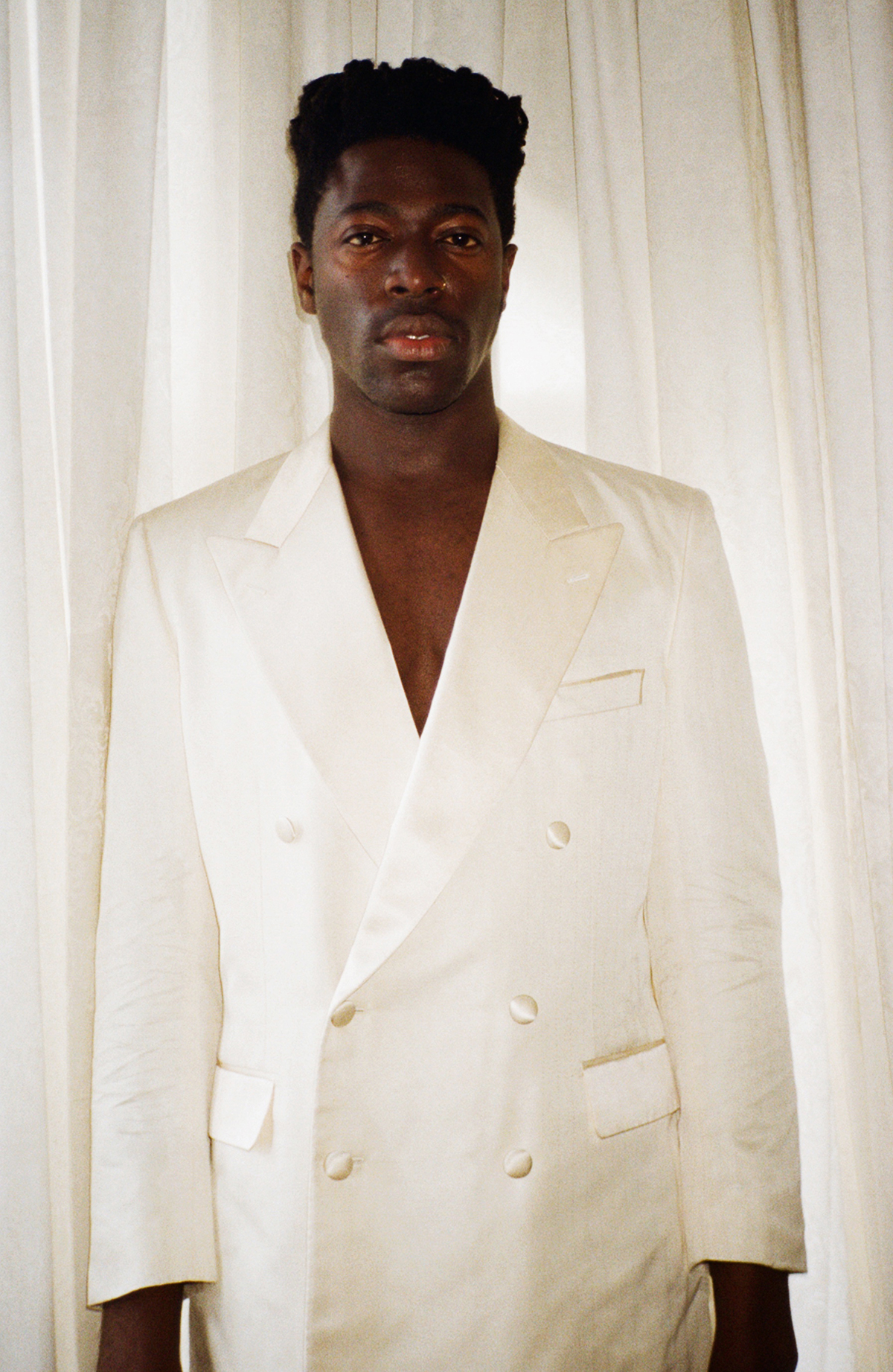
Blazer Vintage
How did “Lonely World” come about?
I was living in a small house in the mountains by myself in the winter-time. I just went there in December and stayed through Christmas because I just wanted to write and be really isolated. That was a lonely time. I put myself in the position of potential loneliness and isolation because that drives me to think about things in a new way. That uninterrupted way, which is necessary for writing songs. I wrote that song when I was in the mountains, it was a year ago or maybe two. And I just wrote it quickly – no music and no chords. Just wrote it like a palette. And then I brought it to the musicians to fill up the sound.
How do you get in the mood to write?
I think just putting myself in an environment where my phone is not gonna ring, and I’m not gonna be thinking about who’s around. It’s the best way to get into the mood of writing. Because sometimes you feel inspired, but living in the city, it’s kind of hard to get away. It’s sometimes overwhelming.
It’s hard not to check your phone for a day or two, isn’t it?
That’s what everyone thinks, and it is a little bit uncomfortable, but it becomes necessary. This comfort, this kind of wall is a part of a process. I think after a day or two, it goes away. It’s easy to get off. I mean the first day is hard, and then you just like “Ok, here I am now.” You’re just in a better position to be inspired because you have more time to focus and make stuff.
How did you start working with Solange?
We met on Instagram, I commented on her page, and I was like “Hey, I like your music”. She replied to me, and she was like “OMG, that’s so weird that you commented because I like your music too.”
And in my head, I was like WHAT?! I think before I went to record the vocals for her, we had been friends for about a year and I played some shows with her. We just like hung out and then she asked if I would come to the studio and listen to some stuff and sing. It was that simple. She had a role in her mind, what she wanted from me, and how different people can play different roles. Because I have a quieter voice, she asked me to do some quieter parts in the song. MAD!
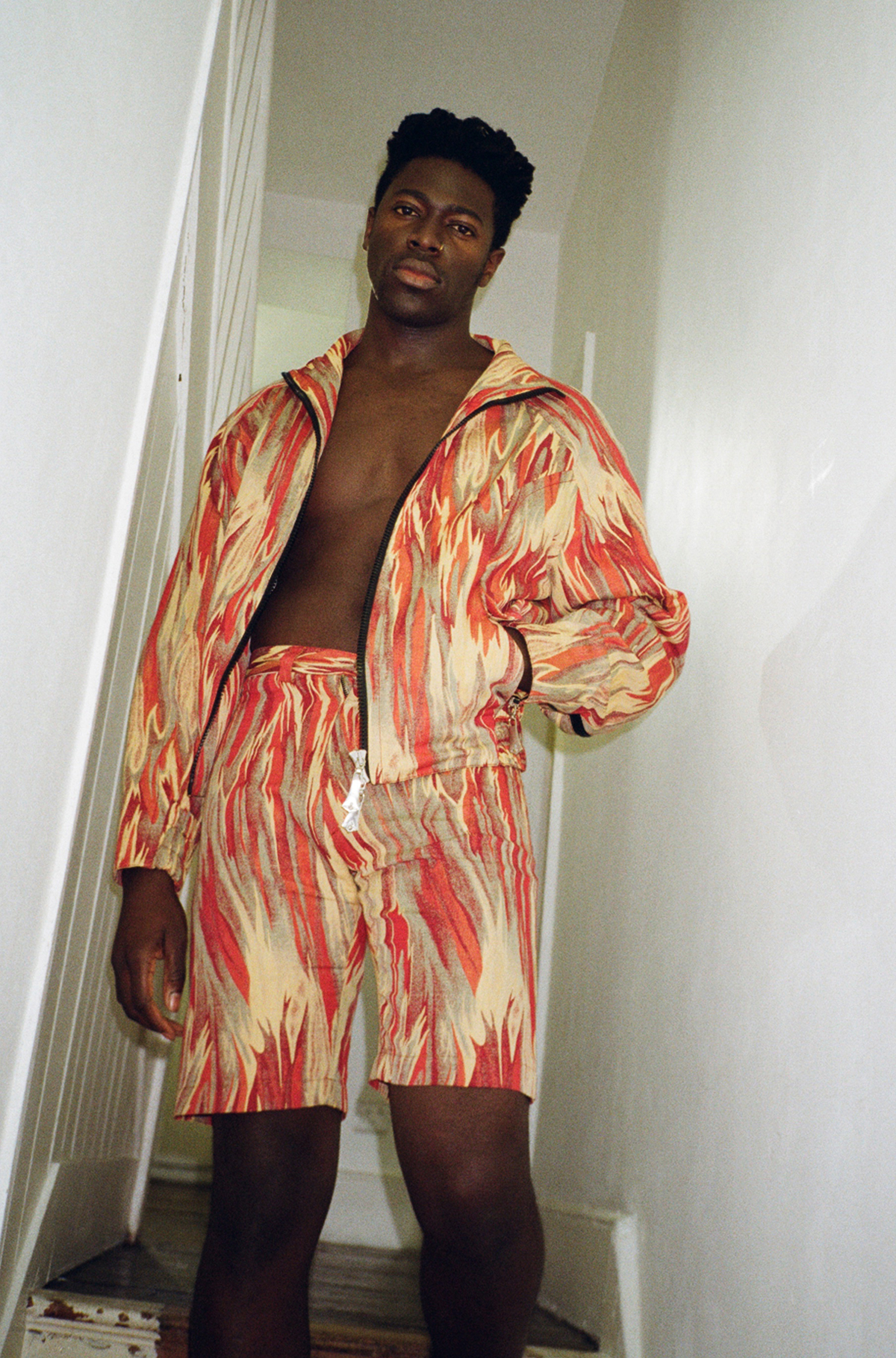
Full Look Vivienne Westwood Archive
Your track “Incantation” is exquisitely sung solely in Hebrew. What is your connection with this language?
I did that song because of a harp player I discovered in Montreal. I was recording an album and was looking for a harp player, and I found this woman. I just saw her playing the harp from the window of her house, and I wrote her letter and asked her if she would play my music. When she replied to the letter, she sent me an email telling me she was down to play with me. I found this video of her singing this song in Hebrew.
The song I recorded is like an old prayer. It’s like two old prayers stitched together. From that, I just decided to do my version of it, because I thought it was just a very beautiful song. There are quite a few versions of that song.
What is the best part of being a musician? What are some perks?
I guess being able to meet a lot of people who are similar, like other people who enjoy music as much as I do. I didn’t have that growing up, so I like to have that now. I also get to travel to places sometimes and play. I toured Australia in January, so I guess I wouldn’t have had the opportunity to go there if I weren’t a musician.
What do you do for fun apart from playing music?
Oh my God, absolutely nothing. That’s maybe one thing that’s surprising, or maybe it’s not surprising. I don’t actually do anything for fun. Like sometimes I’ll visit a friend, or I’ll go for tea. But I’m not into anything apart from music (laughs). I don’t have any hobbies.
Who is someone you would like to work with – alive or dead?
I’d love to work with Brandy (laughs). I would love to hear Brandy singing a soul song or get her on a folk song because the textures in her voice are so interesting.
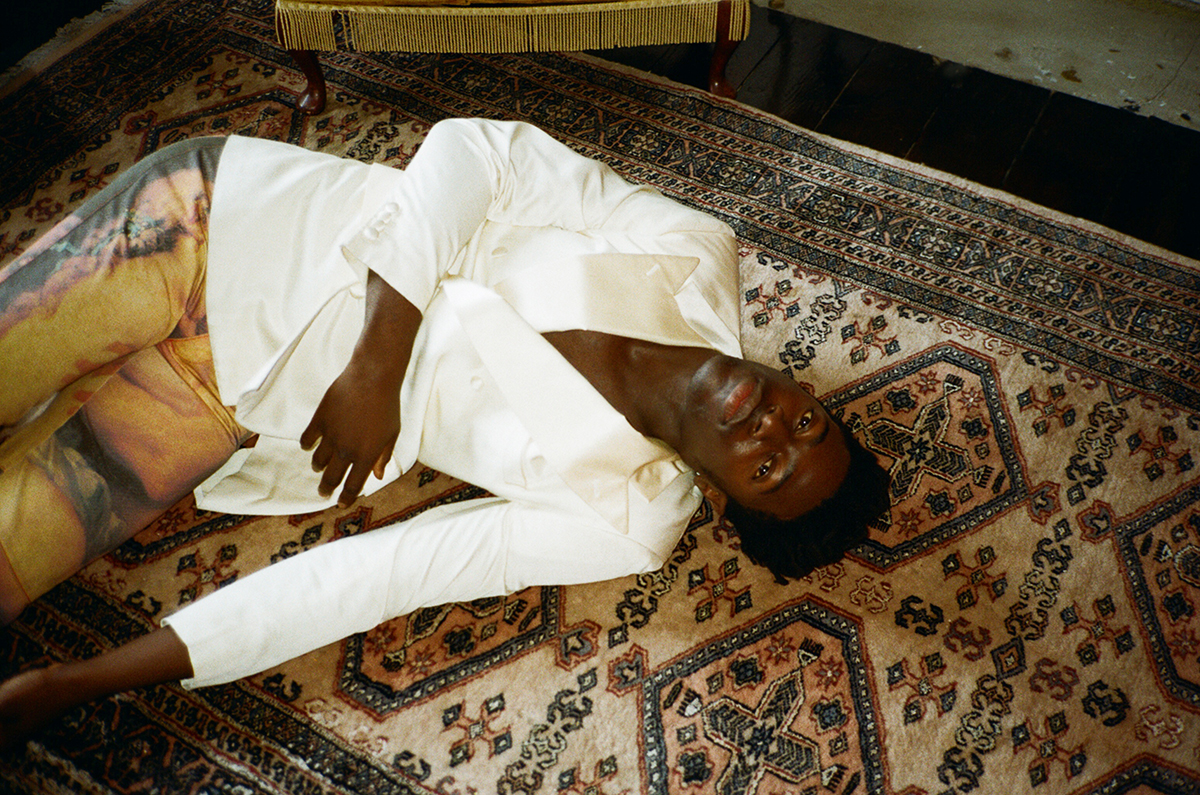
Blazer Vintage, Trousers Vivienne Westwood Archive
If you could have dinner with anyone, who would it be and what would you eat?
I would have dinner with probably nobody because people are boring. (laughs) I would just have dinner alone. I want to get into really healthy food, so I would probably have a salad.
Can we expect any aesthetic variations on this upcoming album release?
Yeah, it’s pretty different. There’s a lot more production.
What’s next for you in 2017?
I need to finish my album and start mixing it! After I finish the album, I’m probably going to be touring, but I also want to be working on the next release. I’m playing in London in April at the Union Chapel. I’m actually planning on moving there. I love everything about this city, including the cold weather.
This interview can be found in our printed Nature of the Beast Issue.